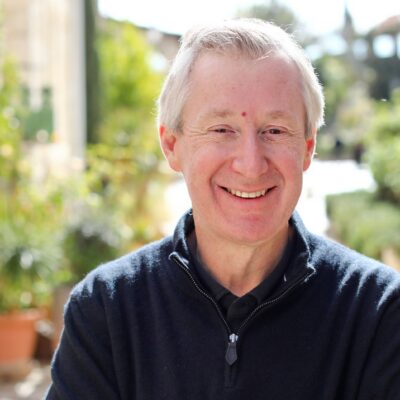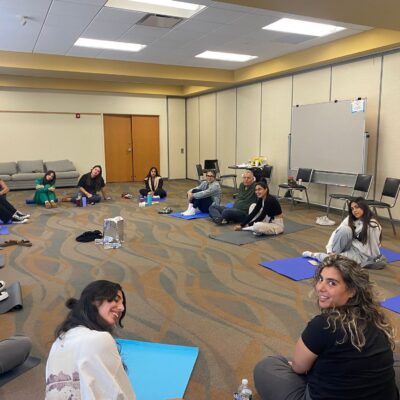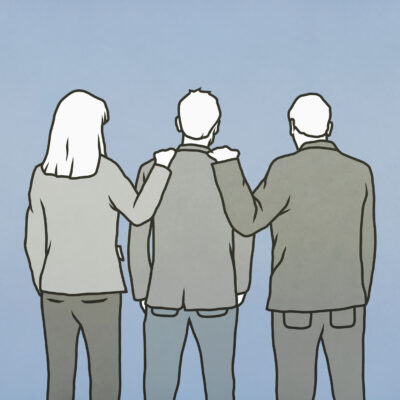Opinion
The pages of Ecclesiastes are now the pages of our lives
About this time a few years ago, when the leaves were changing color, I went to visit a friend in the hospital who was very ill. The hospital was in another state, and I went from reception desk to reception desk asking for her room number, only to be told that there were three patients with the same name. I would need special permission from her next of kin to see her. The problem was that her next of kin was not answering the phone. A few hours later, I finally got hold of him. He told me not to worry. I would see her in the next few days. But my dear friend, to everyone’s surprise, died that evening. I was unable to see her for the last time and say goodbye.
This dose of deep regret helped me appreciate the advice that the Israel Defense Forces gives soldiers before entering combat: Say goodbye. Don’t wait. First write letters to loved ones with the hopes that no one will have to read them. Ever.
“There is probably no one more content right now than I am. I am about to fulfill my life’s dream. I am happy and am grateful for the privilege I will have to defend our beautiful land and the people of Israel.” Those are the haunting words of Sgt. Maj. Ben Zussman, of blessed memory, who left those words for his parents. He fought as a member of the Combat Engineering Corps’ 601st Battalion and was killed fighting in Gaza on Dec. 3, 2023, at the tender age of 22.
Capt. Liron Snir was a resident of Ofra and close to completing his army service when he was killed at age 25. He served as a squad commander in the Golani Reconnaissance Unit and was killed in combat in the northern Gaza Strip on Nov. 21. In his letter, he wrote, “… I am happy about the life I’ve lived, what I did, what I was, on behalf of my people.”
This advice is important when there is time to say goodbye. But who could have imagined that on Oct. 7 so many people who least expected it would be killed or taken hostage without time to say farewell or share gratitude and tender affection. Michal Ohana, a Nova music festival survivor in her late 20s, remembers what she said to her mother, in what she thought would be her final words on Oct. 7, 2023: “I called my mum and said, ‘Mum, I love you, but I think I’m gonna die because nobody [is] coming, and they shot me. I’m bleeding.” Ten of Michal’s friends died that day, and two were taken hostage. Michal lived and recalled what she thought her last words would have been: I love you.
These last words are simultaneously inspiring and depressing, and I’ve been thinking about them a great deal as we transition from Yom Kippur to Sukkot, when we traditionally read Kohelet, the Book of Ecclesiastes. Kohelet expresses great uncertainty about the world and accentuates the looming shadow of death. Be prepared, its author assumes, for any eventuality, and make every moment count more. In seven verse clusters throughout the book, Kohelet promotes the small joys of eating and drinking with friends amidst the grander, more difficult of life’s challenges. This, too, is a response to the fragility of life. Say the right words and grab the temporal pleasures because they may be all you have.
As we transition between the seriousness and trepidation of the Days of Awe and the joy and levity of Sukkot, reading Kohelet is the one ritual that helps us bridge this disparate emotional range of the season, especially this Sukkot. Its dense proverbs question the nature of human existence, the problems of governance, the hardship of work, the pleasures and futility of money, and the difficult process of aging. The book’s existential themes, surprisingly canonized as a book of the Bible, would seem more at home as Yom Kippur reading than as the scroll read every intermediate Shabbat of Sukkot. Kohelet, taken seriously, strips us of the veneer of our significance and forces us to ask the most important questions about human living.
One of its verses, in fact, is regarded as a biblical proof text in the Talmud that we are to “repent one day before death” (BT Shabbat 153a). In the ninth chapter of Kohelet, we read, “At all times your clothes should be white” (Eccl. 9:8). This is not advice about bleaching stains but about being pure and clean of sin always. Since we never know the day of death and judgment, it is best to be as good, as loving, and as giving as possible each and every day. Be prepared.
On Sukkot, we sit in small makeshift booths. These are not only huts that mark the harvest. They are also architectural nods to human vulnerability, the same tensile feelings we have when reading Kohelet. Sukkahs are small and simple spaces in which to invite guests. These temporary dwellings are makeshift spaces where we can only fit those who we care about most: family, old friends, and strangers who will become new friends because we treat them like angels. Do we really need anything more?
This Sukkot, as we recite Ushpizin to welcome in heroes from our biblical past, let us include heroes and hostages from our recent past. And let us create authentically intimate spaces – physically and emotionally — where we are not afraid to tell our friends and family what they mean to us and how much we love them under the shelter of a ceiling that still exposes a little bit of heaven. Because we are alive and because we can.
Dr. Erica Brown is the author of Kohelet and the Search for Meaning (Maggid) and Morning Has Broken: Faith After October 7th (Toby Press), available from Koren and on Amazon. She serves as the vice provost for leadership and values at Yeshiva University and the director of its Rabbi Lord Jonathan Sacks-Herenstein Center for Values and Leadership.

 Add EJP on Google
Add EJP on Google









